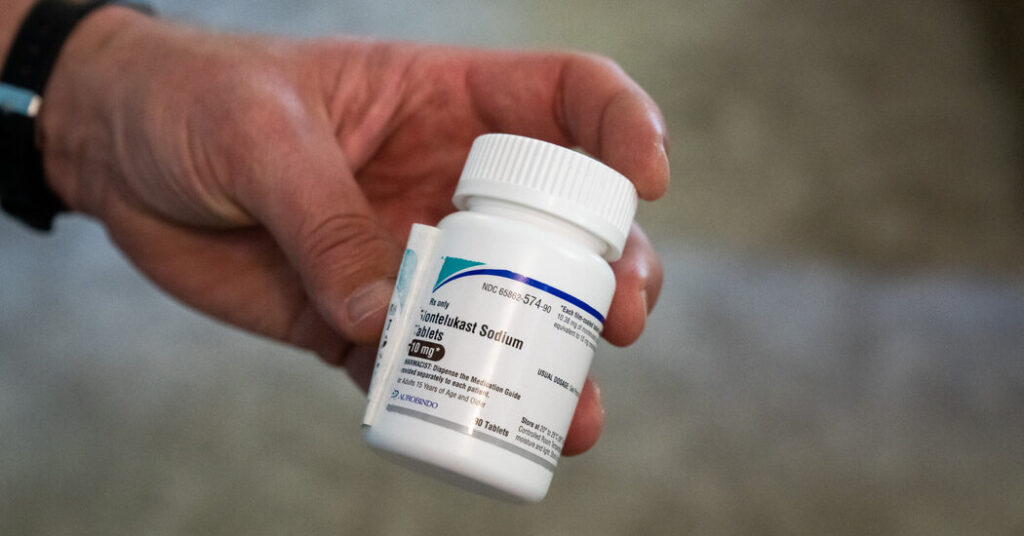New research from U.S. Food and Drug Administration (FDA) scientists has uncovered concerning evidence about montelukast (Singulair), a widely prescribed asthma medication. The findings suggest the drug may have more significant effects on the brain than previously understood, raising important questions about its safety profile and usage.
Key Research Findings
Brain Receptor Interaction
- “Significant binding” to multiple brain receptors
- Impacts areas critical to psychiatric functioning
- Similar behavior to known neuropsychiatric medications
- Higher concentration in brain regions linked to psychiatric effects
Historical Context
- Launched in 1998 by Merck
- Initially marketed with “sugar pill” level side effects
- Label claimed “minimal” brain distribution
- Now prescribed to millions annually as generic
Safety Concerns Timeline
Evolution of Understanding
- 1998: Initial release with minimal safety concerns
- 2019: Thousands of neuropsychiatric reports documented
- 2020: FDA adds “black box” warning
- 2024: New research confirms brain penetration
Documented Impact
- 82 reported suicides since 1998
- 31 cases involving patients 19 or younger
- Thousands of neuropsychiatric episodes reported
- Multiple pending lawsuits
Scientific Evidence
Laboratory Findings
- Penetrates brain barrier in rat studies
- Binds to receptors affecting:
- Mood regulation
- Impulse control
- Cognition
- Sleep patterns
Expert Perspectives
Dr. Julia Marschallinger and Dr. Ludwig Aigner from Austria’s Institute of Molecular Regenerative Medicine note that the new data:
- Confirms significant brain presence
- Supports patient-reported side effects
- Raises concerns about mechanism of action
- Warrants further investigation
Patient Safety Implications
Current Status
- FDA continuing investigation
- No immediate label updates planned
- Ongoing monitoring of adverse events
- Further research needed on accumulation patterns
Risk Factors
- Individual susceptibility unclear
- Varied patient responses reported
- Age-related concerns noted
- Duration of use considerations
Recommendations for Patients
- Consult healthcare providers about concerns
- Don’t stop medication without medical advice
- Monitor for behavioral changes
- Report adverse effects to FDA
- Discuss alternative treatment options
While Singulair remains an important treatment option for many asthma patients, this new research underscores the need for careful consideration of its use and enhanced monitoring of patients. Healthcare providers and patients should weigh these findings when making treatment decisions, particularly for younger patients or those with existing mental health concerns.











